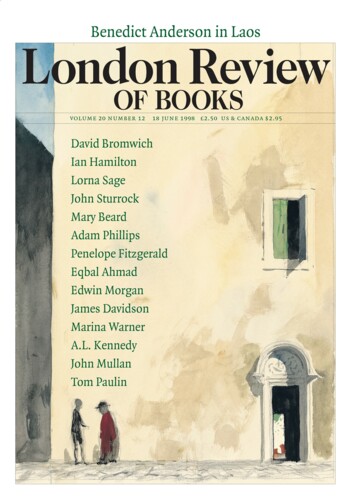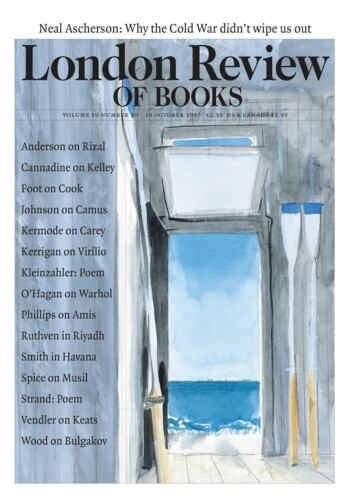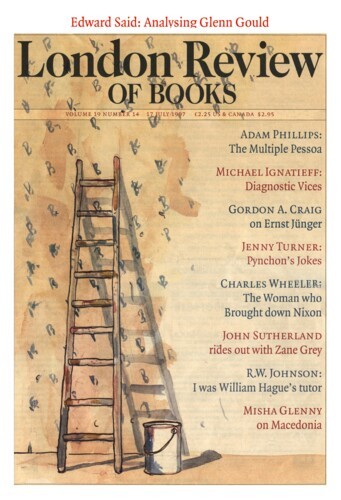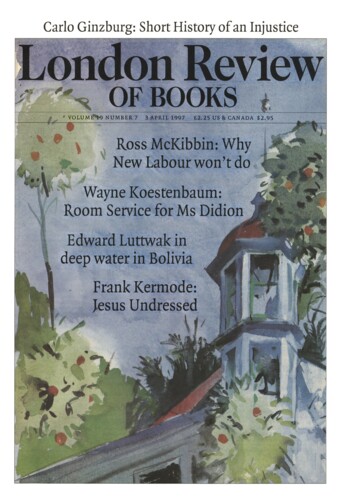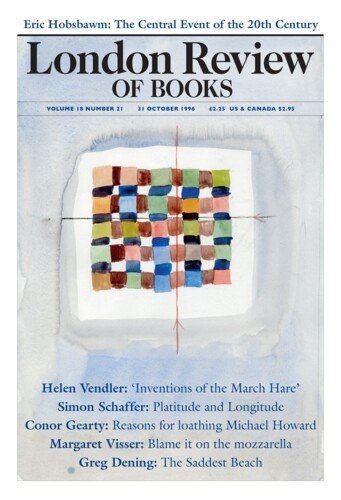Long Runs: A.E. Housman
Adam Phillips, 18 June 1998
‘Passion and scholarship may enhance each other’s effects,’ E.M. Forster noted in his Commonplace Book with A.E. Housman in mind. Forster was always keen to reduce the incompatibles in life: Housman was less persuaded by such redemptive harmonies. He preferred the losing paradoxes to the winning ones: ‘ “Whoever shall save his life shall lose it, and whosoever will lose his life shall find it.” That is the most important truth that has ever been uttered,’ he said in his Leslie Stephen Lecture of 1933, published as The Name and Nature of Poetry. His poetry is always fascinated by what is irresolvable – ‘Keep we must, if keep we can/These foreign laws of God and man’ – and his scholarly prose concerned, above all, with such textual resolutions as are possible in a world of inevitably corrupt classical texts. Having lost his faith at 13 – though never his interest in the Bible, as Archie Burnett’s commentary on the poems in this wonderful edition makes very clear – he discovered a vocation for accuracy.’‘
